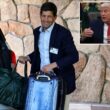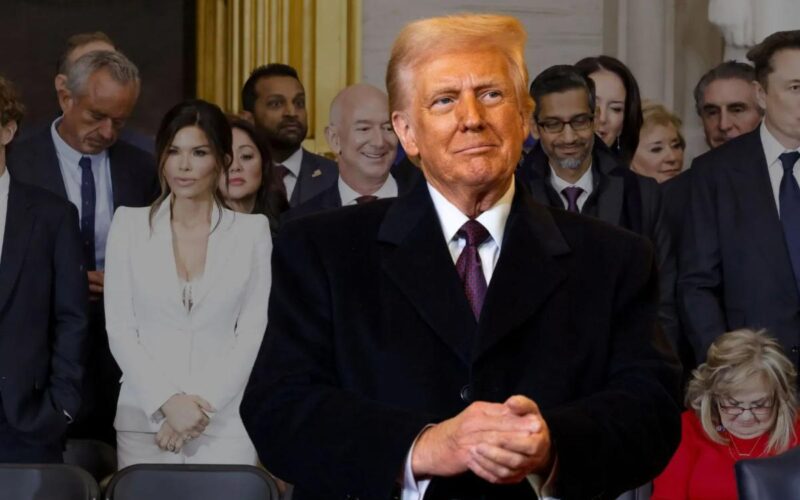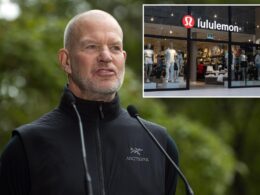On Inauguration Day, CEOs lined up behind Donald Trump at the podium. Ten months into his presidency, they haven’t gone anywhere. If anything, they’ve become fixtures at dinners and forums — and that’s a good thing for the economy and national security alike.
At a recent dinner honoring Saudi Crown Prince Mohammed bin Salman — who committed to invest $1 trillion in the US — the table was packed with corporate America’s heaviest hitters: Coinbase CEO Brian Armstrong, Salesforce’s Marc Benioff, GM’s Mary Barra, Pfizer’s Albert Bourla, Apple’s Tim Cook, JPMorgan’s Jane Fraser, Nvidia’s Jensen Huang, Palantir’s Alex Karp, Elon Musk, Blackstone’s Steve Schwarzman, Robinhood’s Vlad Tenev, and Chevron’s Mike Wirth.
A handful of celebrities, such as Cristiano Ronald, and content creators were sprinkled in for good measure.
“It was interesting to see how giddy these CEOs are to be part of this — they are excited to be there because the president actually likes them and helps them with the deregulation to advance AI,” one dinner attendee who spoke on the condition of anonymity told me.
Elon Musk was notably back in the fold and “visibly happy to be there” — though one attendee observed that his seat wasn’t as good as it had been before the breakup.
The next day, Trump spoke at an investment forum alongside several CEOs, an occurrence that has become de rigueur for the administration.
“Trump has always prioritized private sector relationships — his entire presidency is predicated on the belief that “both parties have failed,” longtime adviser Jason Miller told me. “Coming from the private sector and the first CEO to become president, he values the opinions of other business leaders and job creators. He wants to go right to the top to hear solutions.”
These relationships aren’t just about securing investment and creating jobs. They’re emblematic of the growing importance of technology to geopolitics and national security. As Nvidia CEO Jensen Huang stated in a recent interview, “Technology is now too important in politics.”
“The president has this huge level of respect for what’s at stake,” another dinner attendee told me. “This is the whole game and he doesn’t want to lose to China.”
That urgency centers on artificial intelligence. Trump believes whoever wins the AI race will win everything— and that the race will be decided in the next three years.
This story is part of NYNext, an indispensable insider insight into the innovations, moonshots and political chess moves that matter most to NYC’s power players (and those who aspire to be).
“He knows we’re in a technological arms race with China and that if America is going to get winning results, the country’s best and brightest need to come together, work with the government, and build things that secure American dominance and deter our adversaries,” Mike Gallagher, Head of Defense at Palantir told me.
“President Trump speaks the same language as business leaders: you either get results or you don’t.”
To be sure, every president hosts state dinners with business leaders. But under Biden, such events were dominated by bureaucrats and policy experts, not tech titans.
“The Trump administration has completely changed how Washington thinks about technology,” said Alex Jacobson, a partner at 137 Ventures, which recently opened a DC office. “Tech is now treated as a core tool of governance and a driver of American strength in manufacturing, military capacity, healthcare, and energy.”
Michael Kratsios, director of the White House Office of Science and Technology Policy adds, “Technology is no longer a vertical; it’s the backbone of national security and economic strength.”








